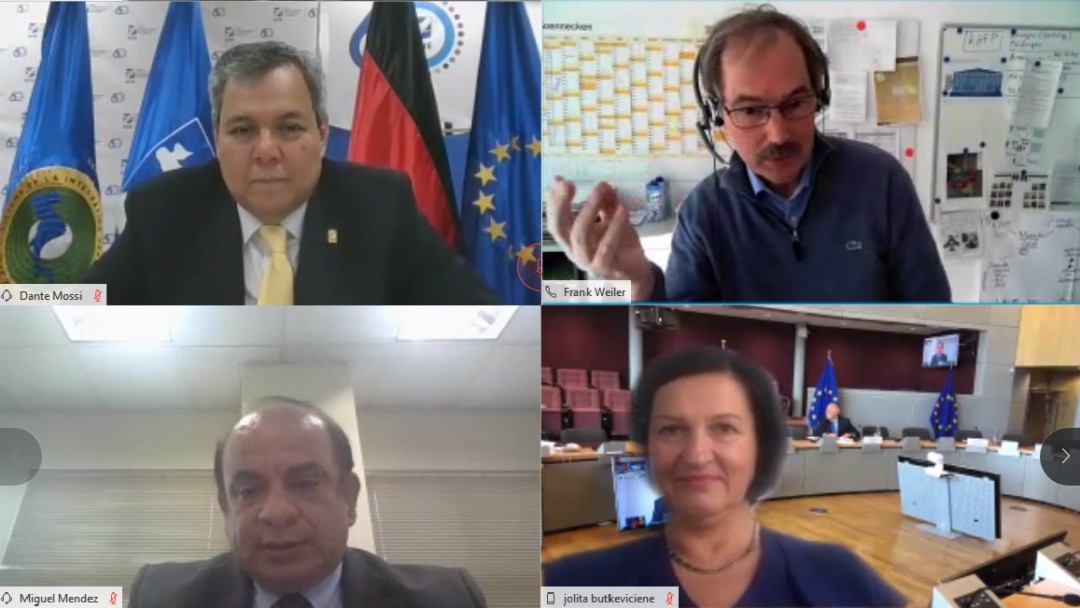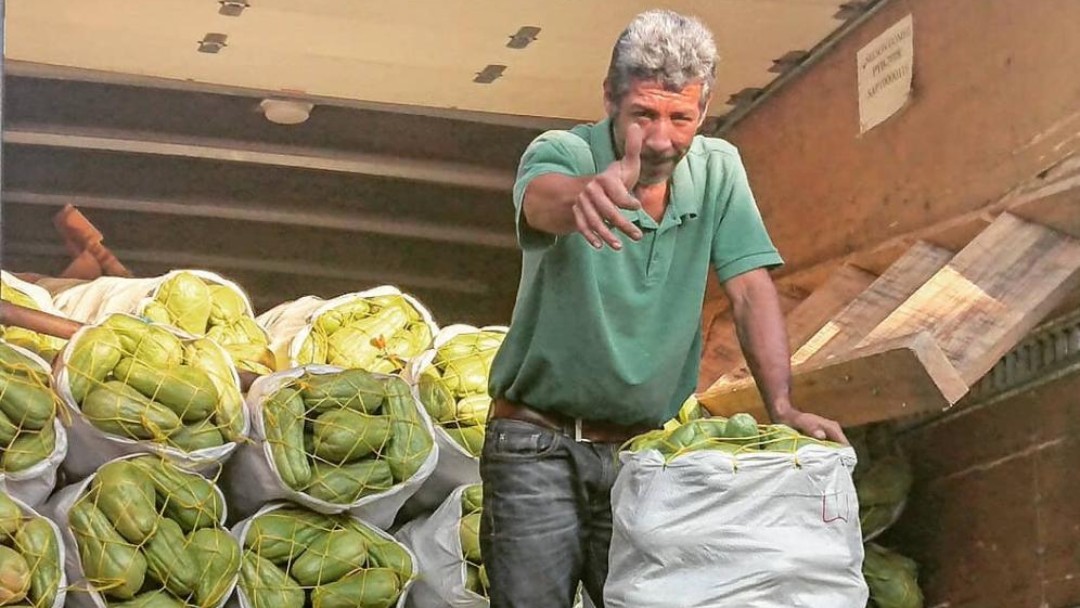News from 2020-06-08 / KfW Development Bank
Signature of the BCIE Corona Emergency Assistance Programme

The Central American Bank for Economic Integration (BCIE) is launching a USD 2 billion corona support programme. On May 29, the component for financing small and medium-sized enterprises with a total volume of USD 350 million was formally launched. Contracts were signed in Tegucigalpa, Brussels and Frankfurt.
The peak of the Covid 19 infection wave is still to come in Central America. Efforts to expand testing and treatment options are in full swing. The national health systems are hardly in a position to control the outbreak of the crisis and its consequences. Some governments have taken early and sometimes drastic countermeasures. Panama was the first country to declare a state of emergency on 12 March, followed by Honduras (16 March) and Guatemala (border closure on 17 March). El Salvador imposed a comprehensive curfew on 21 March and Costa Rica responded by closing its borders on 24 March. Nicaragua is taking a special path: on the understanding that the country is sufficiently prepared against the pandemic, the government is even allowing mass rallies and sporting events.
The UN Economic Commission for Latin America and the Caribbean (CEPAL) is predicting an economic slump this year, with economic activity in the region expected to shrink by a good 5%. A high unemployment rate of an estimated 11.5% and an increase in poverty and inequality are the consequences. According to a World Bank estimate, remittances from migrants from Latin America, which represent an important source of income for many families, will also fall by 19.3% compared to the previous year (2019: USD 69 billion). COVID-19 is a catastrophe for the many migrants, whose remittances are an indispensable economic factor for Belize, El Salvador, Guatemala, Honduras and Nicaragua. They are usually the first to lose their jobs during an economic crisis - also due to the lockdown in the countries. The tourism sector in the Caribbean could collapse by 15%, and many jobs are at risk here too.
In this situation, the Central American Bank for Economic Integration (Banco Centroamericano de Integración Económica, BCIE) has set up a corona emergency aid programme in addition to its normal activities. KfW Development Bank has been cooperating with BCIE on behalf of the German federal government for many years and supports small and medium-sized enterprises in creating and securing jobs. After all, they are the ones who provide almost half of all jobs in Central America, too. BCIE's Corona Support Programme comprises a total of around USD 2 billion for states, central banks and commercial banks in the region, but also to support the health systems. KfW Development Bank provides part of these funds, but BCIE is also in talks with other partners - such as AFD or EIB.

On 29 May the MSME financing component with a total volume of USD 350 million was formally launched - the contracts were signed in Tegucigalpa, Brussels and Frankfurt. KfW is participating in the emergency aid programme with projects on behalf of the German Federal Ministry for Economic Cooperation and Development (BMZ) and the European Union (EU) with a total volume of approximately EUR 100 million. The approximately one hundred participants from BCIE, the EU, BMZ and KfW were connected via Webex - which is now unproblematic in corona times.
BCIE developed the emergency aid programme for MSMEs with support from KfW Development Bank. The financing package consists of a mixture of loans, guarantees and grants. The conceptual approach is basically inspired by the corona emergency aid programmes of KfW in Germany and adapted to the Central American context. Portfolio manager Vania Vega Ojopi commented: "When designing the programme we were in close contact with KfW colleagues who developed the corona programmes for Germany. It is satisfying that we are providing not only funds but also, to a very large extent, know-how." Already ongoing FC projects for MSMEs and complementary EU-LAIF projects are important components of the emergency aid programme.
In addition, flexible adjustments are being made possible for the already ongoing programme "MIPYMES Verdes" (loans), which KfW is implementing on behalf of the BMZ. In addition to the MIPYMES Verdes (SMEs investing in the environmental sector) hit by the pandemic, other enterprises can now also apply for loans from the DINAMICA programme. The companies undertake to keep at least 70% of their employees on - because in Central America there is no short-time working allowance from the unemployment agency. Applications are expected from the sectors of tourism, construction and trade, which were severely affected by the pandemic. In addition, the loan funds will be accompanied by loan guarantees for companies making environmental investments. Young enterprises - which may not have been founded more than four years ago - can receive subsidies. This financing package provides liquidity for MSMEs that were severely affected by the pandemic.
In addition to the flexibilisation potential opened up here and due to the foreseeable very high demand for MSME loans, an additional promotional loan to BCIE is planned, on the one hand for further MSME promotion and on the other hand for investments in national health care systems.

Share page
To share the content of this page with your network, click on one of the icons below.
Note on data protection: When you share content, your personal data is transferred to the selected network.
Data protection
Alternatively, you can also copy the short link: https://www.kfw-entwicklungsbank.de/s/enzBWrMC.CQDA
Copy link Link copied